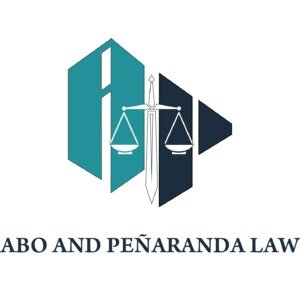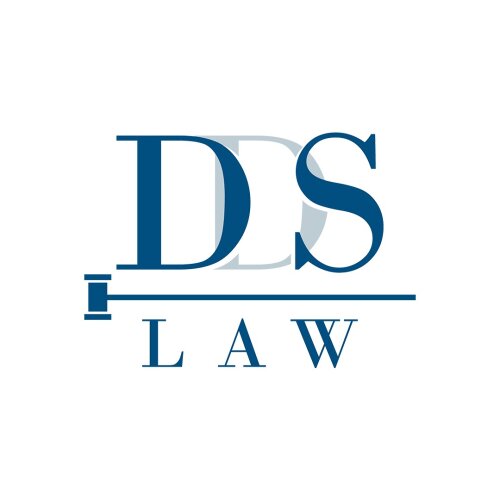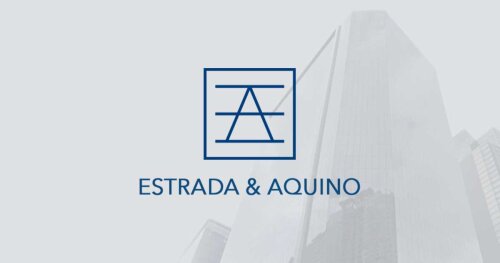Best Water Law Lawyers in Taguig
Share your needs with us, get contacted by law firms.
Free. Takes 2 min.
List of the best lawyers in Taguig, Philippines
About Water Law in Taguig, Philippines
Water Law in Taguig, Philippines governs the use, distribution, management, and protection of water resources within the city’s jurisdiction. Like other urban centers, Taguig is challenged with balancing public access to water, sustainable usage, environmental protection, and private and commercial interests. Water laws are guided by national statutes such as the Philippine Water Code (Presidential Decree No. 1067) and the Clean Water Act (Republic Act No. 9275), but are also enforced and supplemented locally by city ordinances and policies. These regulations cover sources such as rivers, lakes, groundwater, and public water supply systems, with the aim of ensuring equitable distribution, maintaining water quality, and resolving disputes efficiently.
Why You May Need a Lawyer
Seeking expert legal advice in Water Law may become necessary in a variety of scenarios, including:
- Disagreements or disputes over water access or allocation between landowners, neighbors, or communities
- Regulatory compliance issues for businesses, including compliance with permits, licenses, or environmental standards
- Contesting water tariffs, service interruptions, or billing disputes with local utilities or water service providers
- Defending or initiating legal actions related to water pollution, contamination, or illegal dumping
- Navigating government inspections, fines, or enforcement actions related to water use or water quality
- Securing rights to water sources for development, commercial or agricultural use
- Addressing violations of waterway easements or obstructions affecting water flow
Because water is vital for daily life and economic activity, effective legal guidance ensures that your rights are protected while complying with the law.
Local Laws Overview
In Taguig, enforcement of water-related laws and regulations falls under both national statutory frameworks and local ordinances. Key points include:
- Water Permits and Rights - All water appropriations, whether for personal, commercial, or agricultural use, generally require a permit from the National Water Resources Board (NWRB). Taguig City coordinates with NWRB for local implementation.
- Water Quality Standards - The Philippine Clean Water Act lays down standards for wastewater discharge and water pollution prevention. Taguig’s City Environmental and Natural Resources Office (CENRO) enforces local compliance, particularly near waterways like Laguna de Bay and Taguig River.
- Public Water Service - Local utility providers, regulated by the Metropolitan Waterworks and Sewerage System (MWSS), operate under concession agreements. Specific city ordinances may address water rationing, interruption notices, and consumer protection.
- Sanitation and Pollution Control - Ordinances mandate proper disposal of sewage and industrial waste. Illegal discharge can result in hefty fines, closure of establishments, or criminal liabilities.
- Zoning and Development - Taguig City Hall may impose additional conditions on development projects to preserve water sources, maintain green spaces, and protect floodways.
It is essential to consult a legal professional familiar with both national and Taguig-specific regulations to ensure proper compliance or defense in water-related matters.
Frequently Asked Questions
What is considered a water right in Taguig?
A water right is the legal right to use water from a specific source for a stated purpose. In Taguig, as elsewhere in the Philippines, you must secure this right through an application and permit from the NWRB, even when using groundwater or surface water for non-domestic purposes.
Who regulates water supply in Taguig City?
Water supply is primarily managed by local water utilities under the supervision of MWSS, and regulated by national agencies like the NWRB. Taguig City government also enforces supplementary ordinances and deals with consumer concerns.
Can I dig my own well in Taguig?
You can dig a well but you must secure the necessary permits from NWRB and ensure compliance with local zoning and environmental regulations. Certain areas may have restrictions to protect groundwater levels or prevent contamination.
What should I do if my neighbor is blocking a shared waterway?
Obstructing a communal waterway is prohibited. Start by discussing the issue amicably, but if unresolved, consult local authorities or a legal professional. Filing a formal complaint may be necessary to enforce your rights and restore access.
How are water pollution disputes handled in Taguig?
Complaints can be filed with the City Environmental and Natural Resources Office (CENRO) or the Department of Environment and Natural Resources (DENR). Depending on the gravity, cases may be resolved administratively or escalated to civil or criminal courts.
What permits are required for businesses discharging wastewater?
Businesses must secure a Discharge Permit from DENR and comply with effluent standards. Local permits may also be necessary from Taguig CENRO. Non-compliance results in sanctions, fines, or closure orders.
Is rainwater harvesting legal in Taguig?
Yes, rainwater harvesting is allowed, and in some cases, encouraged to reduce demand on public supply and control flooding. Building codes and local ordinances may set guidelines for storage and use systems.
What are the penalties for illegal connections or non-payment of water bills?
Illegal connections may result in criminal charges, administrative fines, and service disconnection. Non-payment of bills generally leads to service interruption and the imposition of surcharges or penalties.
How do I contest high water bills in Taguig?
First, address concerns with your service provider through their dispute resolution process. If unresolved, complaints can be filed with MWSS-Ro Regulatory Office or the Taguig City Hall for further investigation.
Can the city government restrict water usage during droughts?
Yes, during droughts or water shortages, Taguig City can enforce rationing or temporary restrictions on non-essential water use. Notifications of such restrictions are typically issued through official channels.
Additional Resources
For further assistance or information on Water Law in Taguig, consider consulting the following:
- National Water Resources Board (NWRB) - for permits, water rights, and general regulation
- Metropolitan Waterworks and Sewerage System (MWSS) - for utility-related concerns and consumer rights
- Department of Environment and Natural Resources (DENR) - for environmental compliance and pollution issues
- Taguig City Environmental and Natural Resources Office (CENRO) - local enforcement and community concerns
- Punong Barangay (Barangay Captain) - for grassroots mediation of neighborhood disputes
- Local legal aid organizations or the Public Attorney’s Office (PAO) - free or affordable legal advice
Next Steps
If you believe your water rights have been infringed or you are facing water-related legal challenges in Taguig, it is important to take the following steps:
- Carefully gather all relevant documentation, such as permits, contracts, correspondences, and photos, related to your situation.
- Consult with local authorities such as CENRO or your barangay officials for preliminary mediation or guidance.
- Schedule a meeting with a qualified legal professional experienced in Water Law. Be clear about your objectives and provide all supporting documents.
- If advised, pursue formal complaints or legal action through proper city or national agencies.
- Remain informed about your rights and comply with all regulations during the process.
Acting swiftly and seeking legal expertise early can help protect your rights and ensure the best possible outcome in any water-related legal matter in Taguig.
Lawzana helps you find the best lawyers and law firms in Taguig through a curated and pre-screened list of qualified legal professionals. Our platform offers rankings and detailed profiles of attorneys and law firms, allowing you to compare based on practice areas, including Water Law, experience, and client feedback.
Each profile includes a description of the firm's areas of practice, client reviews, team members and partners, year of establishment, spoken languages, office locations, contact information, social media presence, and any published articles or resources. Most firms on our platform speak English and are experienced in both local and international legal matters.
Get a quote from top-rated law firms in Taguig, Philippines — quickly, securely, and without unnecessary hassle.
Disclaimer:
The information provided on this page is for general informational purposes only and does not constitute legal advice. While we strive to ensure the accuracy and relevance of the content, legal information may change over time, and interpretations of the law can vary. You should always consult with a qualified legal professional for advice specific to your situation.
We disclaim all liability for actions taken or not taken based on the content of this page. If you believe any information is incorrect or outdated, please contact us, and we will review and update it where appropriate.













